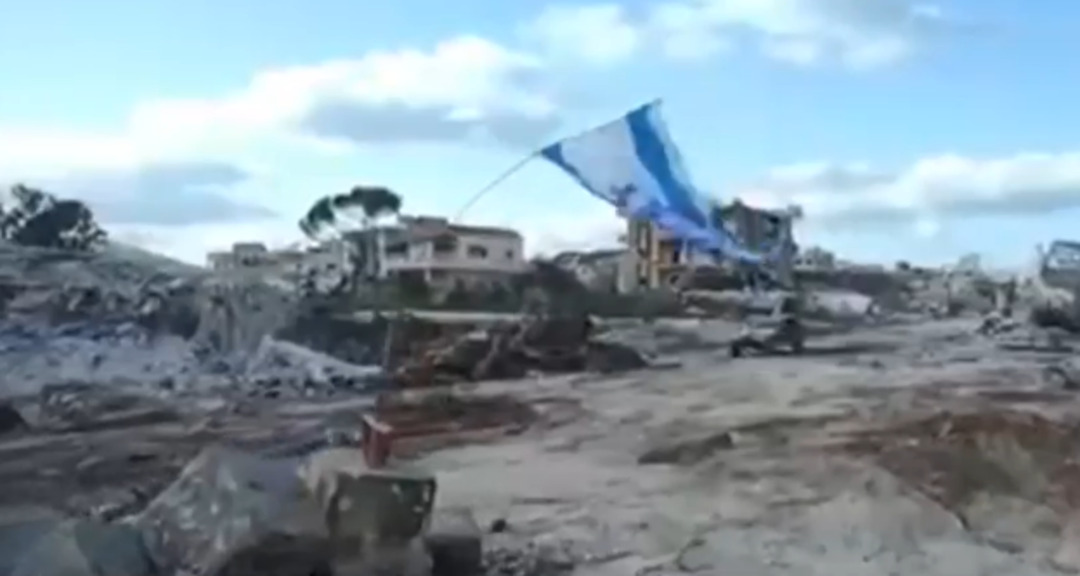-
Secret Clauses in Ceasefire Agreement.. Binding Hezbollah to Military Withdrawal
-
The agreement represents a strategic shift in the region beyond security dimensions to establish a new phase in Lebanese-Israeli relations under international supervision

Lebanon enters a new historic phase with the implementation of the ceasefire agreement between Hezbollah and Israel, as the agreement goes beyond merely stopping military operations to include fundamental changes in Lebanon's political and security landscape.
A Western diplomatic source revealed that the agreement contains undeclared clauses beyond the thirteen announced points, including guarantees and procedures under the responsibility of the United States, which will chair the committee overseeing its implementation.
The agreement includes implementing UN Resolution 1701 in its entirety, along with Resolutions 1559 and 1680, in three phases beginning with security and border arrangements within 60 days, followed by restoring authority in Lebanon through presidential elections and forming a new government.
The source disclosed Lebanon's commitment that Hezbollah has abandoned the principle of unified fronts, confirming that no weapons will be allowed into Lebanon except for the Lebanese army, which will end the party's military presence south of the Litani River according to the so-called "Line 2024."
The new phase is characterized by direct American supervision of the agreement's implementation, granting Israel freedom to counter weapons smuggling from Syria to Lebanon, while the Lebanese army commits to dismantling Hezbollah's infrastructure, with expanded UNIFIL tasks.
The agreement carries strategic significance with Hezbollah's implicit recognition of Israel, as its introduction explicitly referred to "the governments of the Lebanese Republic and the State of Israel," with both parties committing to implementing international resolutions stipulating weapons exclusivity to official institutions.
Implementation procedures include forming a Lebanese technical military committee headed by a U.S. Central Command officer, with establishments in Lebanon and Israel to monitor the agreement's implementation and investigate potential violations.
Reconstruction in border areas will be subject to UNIFIL and Lebanese official authorities' monitoring to ensure facilities aren't used for military purposes, while Israel retains the right to determine residents' return timing based on security conditions.
The plan emphasizes tracking Hezbollah's funding sources, with Lebanon pledging to close illegal crossings with Syria and the "Al-Qard Al-Hassan" institution, while the United States and other countries prepare to pursue major depositors in the institution.
Analysts view the agreement as placing Lebanon at a crucial turning point, potentially offering an opportunity to restore Lebanese legitimacy, but facing challenges amid internal political divisions and the need to reactivate constitutional institutions.
Levant-Agencies
You May Also Like
Popular Posts
Caricature
BENEFIT Sponsors BuildHer...
- April 23, 2025
BENEFIT, the Kingdom’s innovator and leading company in Fintech and electronic financial transactions service, has sponsored the BuildHer CityHack 2025 Hackathon, a two-day event spearheaded by the College of Engineering and Technology at the Royal University for Women (RUW).
Aimed at secondary school students, the event brought together a distinguished group of academic professionals and technology experts to mentor and inspire young participants.
More than 100 high school students from across the Kingdom of Bahrain took part in the hackathon, which featured an intensive programme of training workshops and hands-on sessions. These activities were tailored to enhance participants’ critical thinking, collaborative problem-solving, and team-building capabilities, while also encouraging the development of practical and sustainable solutions to contemporary challenges using modern technological tools.
BENEFIT’s Chief Executive Mr. Abdulwahed AlJanahi, commented: “Our support for this educational hackathon reflects our long-term strategic vision to nurture the talents of emerging national youth and empower the next generation of accomplished female leaders in technology. By fostering creativity and innovation, we aim to contribute meaningfully to Bahrain’s comprehensive development goals and align with the aspirations outlined in the Kingdom’s Vision 2030—an ambition in which BENEFIT plays a central role.”
Professor Riyadh Yousif Hamzah, President of the Royal University for Women, commented: “This initiative reflects our commitment to advancing women in STEM fields. We're cultivating a generation of creative, solution-driven female leaders who will drive national development. Our partnership with BENEFIT exemplifies the powerful synergy between academia and private sector in supporting educational innovation.”
Hanan Abdulla Hasan, Senior Manager, PR & Communication at BENEFIT, said: “We are honoured to collaborate with RUW in supporting this remarkable technology-focused event. It highlights our commitment to social responsibility, and our ongoing efforts to enhance the digital and innovation capabilities of young Bahraini women and foster their ability to harness technological tools in the service of a smarter, more sustainable future.”
For his part, Dr. Humam ElAgha, Acting Dean of the College of Engineering and Technology at the University, said: “BuildHer CityHack 2025 embodies our hands-on approach to education. By tackling real-world problems through creative thinking and sustainable solutions, we're preparing women to thrive in the knowledge economy – a cornerstone of the University's vision.”
opinion
Report
ads
Newsletter
Subscribe to our mailing list to get the new updates!






















